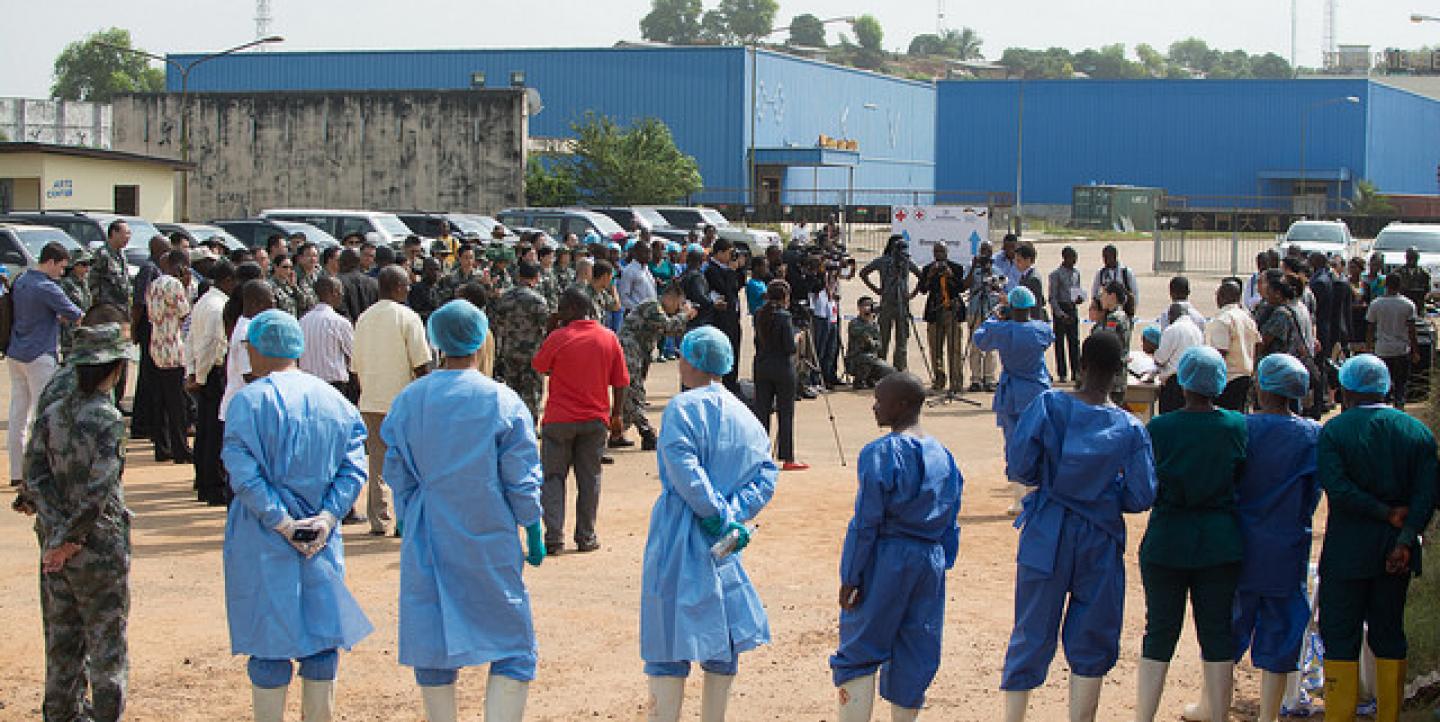When the World Health Organization officially confirmed an outbreak of Ebola in Sierra Leone late in May last year, Toronto Star global health reporter Jennifer Yang immediately knew it was a big international story and she had to cover it.
But she also knew she would first have to overcome some major obstacles if she hoped to travel to West Africa for the story: budgets at her paper had been consistently cut, and it would be difficult to gauge the scale of the outbreak from distant Canada well enough to convince her superiors that it was a story worth covering.
It took weeks of convincing and careful planning before Yang got the final go-ahead to travel to Sierra Leone for 10 days.
Besides the budget hurdles, she had to overcome the “fear factor”. Her paper, she says, was “incredibly nervous about the risks involved, in stark contrast to sending people to conflict and war zones. We are used to that, but there was no operating manual for how to cover Ebola. Then there were questions like was I covered by insurance and what if I got infected and had to be brought back to Canada?”
In retrospect, in some ways it was one of the easiest stories she has covered, says Yang. “The story was everywhere; you did not have to hunt for it. But logistically it was tough, like getting someone to drive you to the epicenter. One driver even ranked the roads, which were terrible, above Ebola as a reason not to go into the area.”
The risks were manageable by following certain protocols like wearing masks and gloves, not touching anyone and never touching her own face or putting in or taking out her contact lenses without first using a strong disinfectant.
Yang was among reporters who discussed the challenges of covering Ebola during the recent World Conference of Science Journalists in Seoul, South Korea.
As she fought in her newsroom for approval to cover the story, Umaru Fofana, a freelance journalist who is also the BBC’s Sierra Leone correspondent, was hearing stories about an outbreak of the killer disease, even though the government kept silent.
Five weeks later, after the WHO confirmed the scale of the outbreak, Fofana pitched the story to the BBC, but his request to travel to the Ebola-plagued area was turned down because he was told it “wasn’t safe”. He then pitched the story to Reuters, which agreed to commission him and referred him to Medecins Sans Frontieres for guidance.
One of the first reporters to reach the eastern town of Kenema, which was at the epicenter of the deadly outbreak, his reportage – including a chilling video shot with his iPhone of a burial squad unceremoniously dumping a victim’s body in a hastily dug grave – helped alert the world to the gravity of the situation.
“I have covered civil wars, coups and violent elections, but I have never felt as frightened as I was covering Ebola,” Fofana said. Access to the hot spots and news sources was tough, while the ever-present danger of him contracting the disease and infecting his family was a constant worry.
“I would visit the front line and then return home to my family. It was a terrible time for us when one of my kids contracted a very high fever, but fortunately it was not Ebola. We had to send our maid away on full pay for fear she might infect our kids, but we told her that it was because we did not want her to catch it from me because of my work.”
Reporters also had to deal with the Sierra Leone government “papering over the cracks and intimidating journalists who were reporting the story,” he says. “Fifteen weeks into the outbreak no state of emergency had been declared and rather than fight Ebola, the government intimidated journalists. We were scared and frightened, but we had to tell the truth.”
Only when the international media picked up the story did the Sierra Leone government finally admit to the scale of the crisis.
Fofana criticized foreign media for largely “focusing their coverage on foreigners”. In fact, he says the army, which set up and ran a hospital that treated hundreds of people, and the 300 local aid workers who died treating the sick, were the real heroes.
And he issued a warning: Now that the attention of the Western media has moved on, there is a real danger of a new outbreak if the media do not keep the spotlight on Sierra Leone.
Raymond Joseph is a veteran of South African newsrooms. Learn more about his work as an ICFJ Knight Fellow here.
Main image CC-licensed by Flickr via UNMEER.

